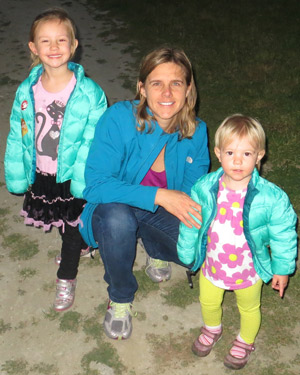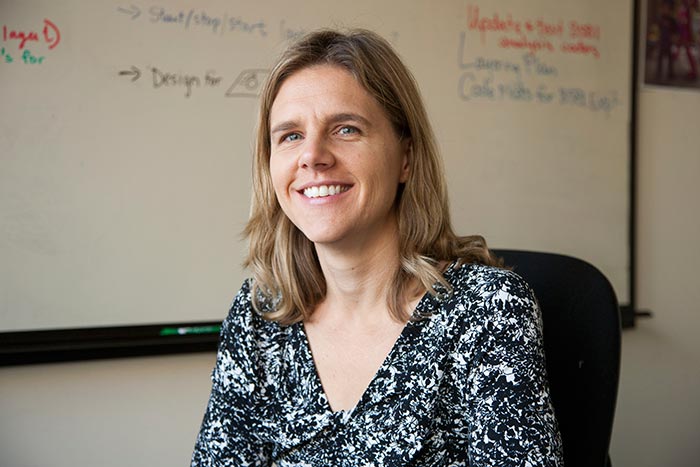Rebecca Dylla-Spears
Rebecca Dylla-Spears, Chemical Engineer and Process Optimizer
What work do you currently do for NIF?
I support the Target Systems and Optics Technology group in our efforts to grow solid deuterium-tritium fuel layers for ignition targets. I'm currently working on process optimization. We are trying to modify our growth process to improve the yield of good layers. We are also trying to find metrics to help identify unacceptable layers sooner, giving us more opportunities to make good layers. The team is learning about DT layer formation through a combination of modeling and experimentation.
You left the Laboratory for 5 years. Why was that?
I originally worked on KDP crystal growth when I first came to the Lab. At that time, I had a BS in chemical engineering from the University of Texas at Austin and had worked at Clorox’s R&D facility in Pleasanton for two years in a process development capacity. After working here awhile and seeing the opportunities, I decided I wanted to “expand my toolbox” a bit, so I went to UC Berkeley and got my PhD in chemical engineering. My dissertation focused on the use of microfluidic stagnation point flows to trap and stretch DNA for detection of tagged sequences.
You also have a BA degree in liberal arts from the University of Texas. Why did you pursue a second degree?
Pursuing a liberal arts degree gave me the opportunity to broaden my horizons. I'm a creative person who has rarely met a subject I wasn't interested in, and I absolutely love literature. But, I'm also curious and analytical, so I leaned toward science for my career. My dad is that way, and he suggested engineering. I think it's what he would have studied if he had gone to college.
Why did you choose to come to LLNL to work?
The different types of science here—the Big Science projects at the forefront of science and discovery—appealed to me. But once I got here, it was the people. I enjoyed seeing their passion. I was hooked once here.
The concepts behind NIF are physics-based, yet your background is in chemical engineering.
You can apply chemical engineering principles to just about any scientific problem. Plus, my process engineering background was applicable to growing crystals and developing target layers.

What do you like to do outside of work?
I’m an avid distance runner. I’ve completed four marathons. It’s a great outlet and it’s also social for me. There’s a group I run with, and we chat the miles away. I’m also a mom of two daughters, 4 l/2 years old and 21 months. They’re the best work I’ve done in my life! I also enjoy hiking, gardening, and spending time with my husband Brian and my kids.
Do you hope your daughters will go into the sciences?
I would encourage them to follow whatever their passion turns out to be. But, I’d be pleased if they opted for science.
Where did you grow up?
I grew up in a small town in Texas called St. Hedwig, near San Antonio. There were around 1500 people there then, and there are only about 2000 there now. Everyone knows everyone. It was hard to move away from my close-knit extended family and community, but I stay in touch.
March 2013




